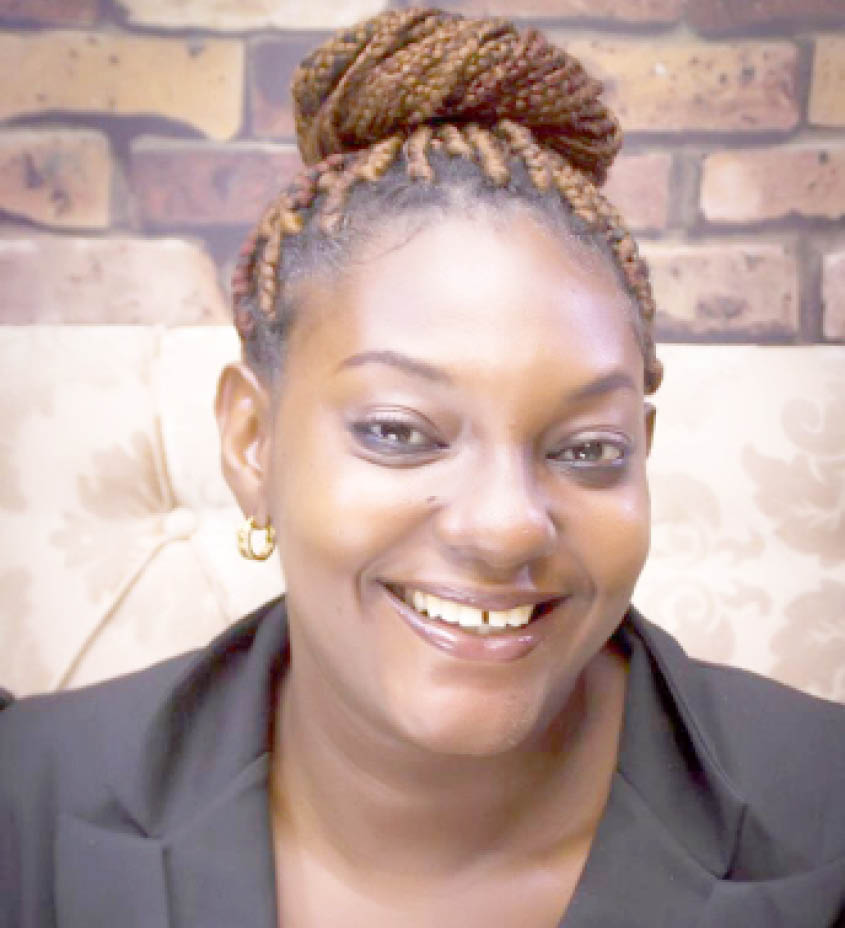Dorothy Njemanze is an activist, producer, inspirational speaker and president of the Dorothy Njemanze Foundation. In this interview with Daily Trust on Sunday, she speaks about the unending battle of human rights, gender equality concerning the Nigerian woman.
As we celebrate the International Women’s Day, can you highlight some issues that are peculiar to the Nigerian woman?
- Women do not have to outperform men before gaining due recognition – Amanfo
- THE BEARING: Why Nigerian Women Thrive Against All Odds
Nigeria is a patriarchal society and the setbacks that come with that are very much present in Nigeria. What are those setbacks; a woman is expected to count or to think of counting only after the last man in the room is tired of counting, right? Gender is a social construct by human beings but before that we are all human beings. Considering we are in 2022, I find it absurd that we are still trying to explain to people that the rights of women as human beings matter and that equal opportunities for females as they are for males is the best standard. In the stone age, those things would have passed without anyone raising heads, but this is the 21st Century and things have to be done differently.
As a woman, do you believe your rights are being respected and acknowledged by society?
Well, compared to where we are coming from, there’s been a lot of progress, but is the progress substantial enough to reflect what needs to be or are we where we need to be? The answer is absolutely no. My rights are not respected and acknowledged by society. In many places on paper, yes. But the thing with paper is that they’re different policies that exist, progressive policies that have come to our laws amongst others things. However, in practice, they are not being implemented. And where for instance, the national orientation agency has not invested in sensitizing people on the different media platform that exist on the provision of these progressive laws, how do we expect people in societies to know about them?
It tends to be people who work in the spaces where these laws were formulated that seem to have knowledge of them, or maybe those in law enforcement for instance, who are being constantly reminded that they have to uphold the law and or those in the judiciary. Even in the judiciary, not everyone is aware of the different progressive laws that exist. People are still living in the stone age. So as a woman, compared to what can be achieved and what can be obtained, my rights are not respected and acknowledged by society.
What is your take on the gender equality bill that was rejected at the National Assembly?
Although it is now being reconsidered, I deem the initial rejection to be a total disgrace. When people are elected into office, that’s partially the legislature. I’m aware that a lot of funds is invested into orientation programs to disabuse their minds and prepare them for service to every Nigerian, irrespective of gender, political affiliation etc. So, where people have brought up evidence that there are no equal rights and opportunities for women in the society as they are for men, the normal approach will be to fix the anomaly. Of course, people would say, oh is anybody stopping them from contesting for elections? Yes, people contest elections having lived a certain number of years in a place. But as a woman, once you’re married, it doesn’t matter how long you’ve lived in the place, the primary excuse is that “oh you’re originally not from here, you’re from somewhere else. Or you cannot contest elections here because you now belong to elsewhere”. I strongly believe it’s the place of the woman to decide where exactly she wants to run for office and how she wants to run for office. So, considering the fact that harmful traditional practices kept getting in the way, it was important to highlight those in the amendments that were recommended for the constitution. But where are we with that again? We are several steps backward.
Gender and equal opportunities bill is something that should not be joked with. It’s important to point out that with the gender and equal opportunities bill, a 25-year window is given and specific recommendations are made. If those are followed through within the 25-year window, the amount of progress that is expected to be achieved should close up the gender gap that currently exist. So, I see no reason why anyone should feel threatened by equal opportunities.
Why do we need to think about things from that perspective?
Take for instance, in the response to sexual and gender-based violence, because of the prevalence of victims and survivors being female, the responses or whatever is instituted to respond to victims is usually talked about through the lens of a woman. Now, what happens when the males become victims? Are the processes instituted sensitive to the needs of men and boys? So, you see, when we are thinking about the gender and equal opportunities bill, it is not women and equal opportunities, it is gender. The bill seeks to see that every gender is carried along in every decision-making process. We’re thinking about how things affect men and women differently, because there could be similarities in how things affect women or men but they’re also distinct peculiarities that could hamper on men or women accessing whatever they need at any point in time.
In the advocacy of gender equality, what is being done wrongly?
What we are looking at here is a foundational problem. A lot of people have been conditioned to believe that anything that has to do with women and children is not important enough. That’s primarily what I see is being done wrongly. Otherwise, when glaring problems are highlighted continuously, there’s absolutely no reason why they’re not looked as the way they have been clearly defined to be.
Also, another thing being done wrongly is that we don’t have good enough political will. We have a lot of lip service being played everywhere. However, it will be nice to see people walk the talk. All the laws and policies that exist, what level of implementation do we have, from the executive, the judiciary and legislature? What implementation steps have been taken when we have things that are written in the laws but we do not have provision for them in the budgets? It automatically means that they’re not serious enough to be addressed. Not enough resources are being dedicated to tackling sexual and gender-based violence. If we do so in many ways, we will be providing medical needs, economical needs, educational needs, security needs and housing needs. Imagine if this wide range of needs are being provided and how they will affect the stability of human beings and improve whatever contributions people can make to the society.
What is your take on the slow implementation of the 35 percent affirmative action?
Anybody who has had an opportunity to appoint people and has not applied the 35 percent affirmative action rule doesn’t deserve a second chance in power. It is important to capture the realities of all genders equally on each project. A typical example is the disaster that happened when the palliatives were rolled out following the COVID-19 lockdown.
Primarily, the palliatives consisted of food items which were the things considered to be important at the time. But pre-covid, we had very big crises which were peculiar to females. We had a menstrual hygiene crisis, and let’s not forget that movements were restricted, resources got scarcer and the lockdown kept getting extended. So, the limited resources people had, especially those who live on a daily income where channelled towards food items for survival. Now, when the palliatives came out, it would have been great to see sanitary towels as part of the items that where being shared because they are considered essentials.
During the lockdown, as a first responder we heard stories of women who were raped simply because they refused to have unprotected sex. If different forms of contraceptives were rolled out with the palliatives, that would have helped decrease incidences of rape and sexual violence against women.
Now, bring it back to the main subject; who were the set of people that sat down and decided what items should be shared out as palliatives? What scope of people were considered when the palliatives were being rolled out? Having seen that, it’s imperative that there’s a minimum of 35 percent of each gender in every appointive position.
The theme this year for the IWD is #Breakthebias, is there any particular bias you would want to be addressed?
The biggest bias I would want to address is the fact that in Nigeria, we don’t have respect for the human rights of women and access to equal opportunities for women. If we did, we would invest in the things that ensure that violation of women rights, inhibition to access of equal opportunities don’t exist. We don’t invest enough in those things because we don’t value them enough. Once it is seen to be a woman’s matter, it’s deemed trivial to be invested in. Women issues are human issues and it’s everyone’s business, therefore it should be adequately invested in whether it is maternity care, reproductive rights, sexual and gender-based violence, all of them matter.

 Join Daily Trust WhatsApp Community For Quick Access To News and Happenings Around You.
Join Daily Trust WhatsApp Community For Quick Access To News and Happenings Around You.
